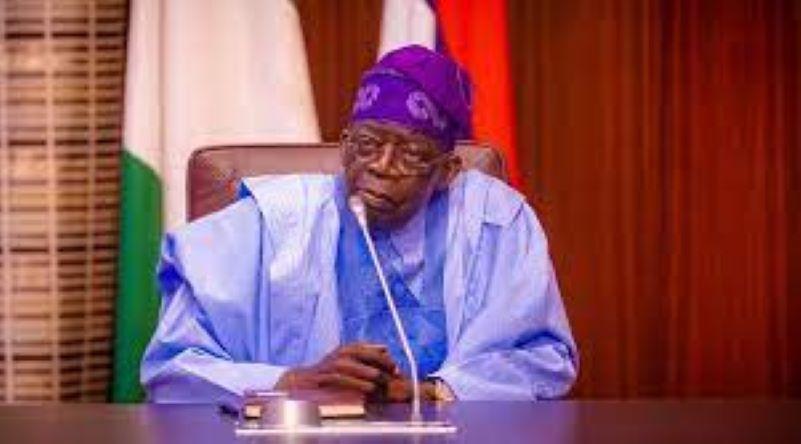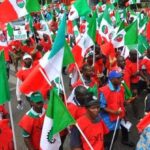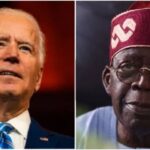By Chesa Chesa
The cliché that the world has become a global village is manifesting itself again in a dramatic way, this time, in Nigeria’s presidential election. In a spectacular and unprecedented twist, the right to Nigeria’s presidency after a keenly contested presidential poll, has found one of its tentacles being tugged at a court thousands of kilometers away in the United States of America.
As President Bola Ahmed Tinubu tries to settle down in office having won the election last February, his opponents are not eager to let him do that too easily. Aside the sundry issues tabled against him at the Presidential Election Petition Court (PEPC), President Tinubu has been dragged before a United States of America District Court by his main challenger in the election Alhaji Atiku Abubakar of the Peoples Democratic Party (PDP).
Alhaji Atiku approached the court to compel President Tinubu’s alma mater – Chicago State University (CSU) – to release his academic records while he studied there. He had accused the President of either not attending the CSU as claimed, or of forging the results/degree certificate claimed and presented as part of his credentials prior to the February 2023 presidential election.
Previous request by Alhaji Atiku, and even other interested parties, to the university had made it confirm that the President was indeed a student at the institution, and graduated in 1979. The Chicago State University has insisted it is not taking sides in the case, and was reported to have declared in a statement explaining that “a federal law known as FERPA (the Family Educational Rights and Privacy Act) protects the privacy of student records and limits what an institution can release”.
It added that “the university can confirm Tinubu attended CSU and graduated in 1979 with a bachelor’s degree. Federal law, however, prevents us from providing any further information without consent or unless allowed to do so via court order. It is important to note that the university is not a party to the Nigerian legal proceedings that spurred this request. We are confident in the veracity and integrity of our records regarding Tinubu’s completion of graduation requirements and degree certificate.
“Our response to the request for Tinubu’s academic records has been entirely consistent with our practices, policies and federal law. We would respond in exactly the same manner for any request for any student information by a third party.”
But this was not enough for the PDP candidate. He insisted on getting details of the President’s academic exploits there.
Well, President Tinubu didn’t think this was necessary or appropriate. Even while the courts in Nigeria have been of the opinion that the challenge put by Alhaji Atiku was not weighty enough, being a pre-election matter, the former Nigerian Vice-President vowed to get the American court to validate his demand.
After several twists in the case, the U.S. District Judge, Ms Nancy Maldonado, before whose court the case is now, had in an emergency hearing ordered the CSU to stay action on a previous court ruling of Magistrate Judge Jeffrey Gilbert asking it to make public the contested academic documents by last week.
That victory in far away Chicago followed shortly after an even bigger victory back home in Nigeria as the PEPC dismissed every item of petition against President Tinubu presented to the court by three of his opponents including Atiku, Mr. Peter Obi of the Labour Party (LP), and the Allied Peoples Movement (APM).
While two of the challengers, PDP and LP have gone on to appeal the judgement at the Nigerian Supreme Court, all eyes are for now on the goings on in the United States. This is because of the assumption that the decision of the court there will have wide implications on the final judgement judgement of the Supreme Court here.
Everyone wants this drama to be over and done with as soon as possible. The tension builds and is obvious to all parties, even though this has not deterred President Tinubu from taking headlong the responsibilities of his office. Indeed, he was attending the United Nations General Assembly (UNGA) in New York while the latest legal battle raged in Judge Maldonado’s court.
In fact, it was apparent the judge was in tune with the edgy emotions and practical implications of her ruling in Nigeria, so much that she remarked her intention to deal with the case as quickly and rightly as she could. That ruling is expected this Monday. According to her: “I will have a busy weekend. The issue is of process and rules. I’m a rule person; that’s why I’m a judge. This case is quite involved. I am aware of the stakes. It’s more important to me to get this right.”
Of course, the stakes are high. It is apparent that this may not be only in Nigeria and its presidential election, but also of the access to academic records and documents of American educational institutions. Obviously. The stake is higher in Africa’s largest democracy where President Tinubu is currently exercising an electoral mandate declared in his favour by the electoral umpire, Independent National Electoral Commission (INEC), and affirmed by the court of first instance, the PEPC.
Given the previous legal battles President Tinubu had fought in his political career and the victories he had chalked up along the way, many observers are quick to envisage another hurdle crossed by him. This may even be the biggest hurdle of them all for a politician often hailed by his admirers for his tenacity and deft moves that outwit his opponents. This is even against the historical background of the fact that results of Nigeria’s presidential elections over the years have never been upturned by any court.
While the wheel grinds in Chicago and hearts beat faster in Nigeria, President Tinubu is exhibiting his usual tenacity and holding tight to his mandate. The robust defiance and challenge he exhibited before the PEPC, he has taken them to Chicago. That is obviously the reason for the upbeat mood in the President’s camp. However it goes in America, Nigeria’s Supreme Court is waited upon to utilise the opportunity to enlighten and enrich the country’s jurisprudence with a bold statement that will signpost a significant milestone in her political landscape.
**
| ReplyForward |



